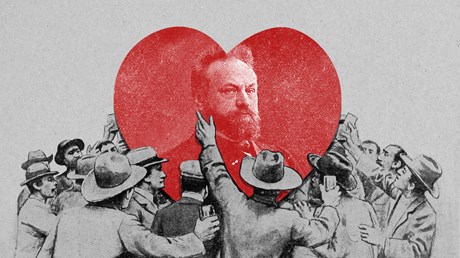How a Dutch neo-Calvinist thinker became the latest Christian theologian-du-jour.

The mark of a theological giant, some say, is the ability to capture the imagination of readers far removed from their own historical period, cultural context, and, importantly, theological tradition.
In the history of Christianity, the list of figures who enjoy that kind of reach is small—and doesn’t grow in a hurry. Over the last decade or so, however, a new star is rising in the firmament: the Dutch neo-Calvinist theologian Herman Bavinck (1854-1921).
In the Netherlands in his own day, Bavinck was a household name. The finest Dutch theological mind of his generation, Bavinck was also a notable public figure at a time of tremendous social upheaval—leaving his mark on the fields of politics, education, women’s rights, and journalism. Across the country, streets and schools were named after him. Beyond this, Bavinck was notable as a person of international standing. On a trip to the United States in 1908, for example, he was hosted at the White House by Theodore Roosevelt. Such honors say a lot.
Despite this, Bavinck’s legacy at home gradually fell into obscurity in the decades after his death. Overseas, his reputation as a stellar thinker lingered amongst those with Dutch connections but failed to grow beyond that over the course of the 20th century. All of that changed in the early years of the 21st century—thanks to the efforts of John Bolt and John Vriend, whose English translation of Bavinck’s Reformed Dogmatics was released in four parts between 2003 and 2008.
To date, those volumes have sold over 90,000 copies—a staggering output for a work of its nature. And that is to say nothing of the Portuguese or Korean versions, or the Spanish, Russian, and Chinese translations which ...
from Christianity Today Magazine
Umn ministry


.gif)

.gif)
.gif)
